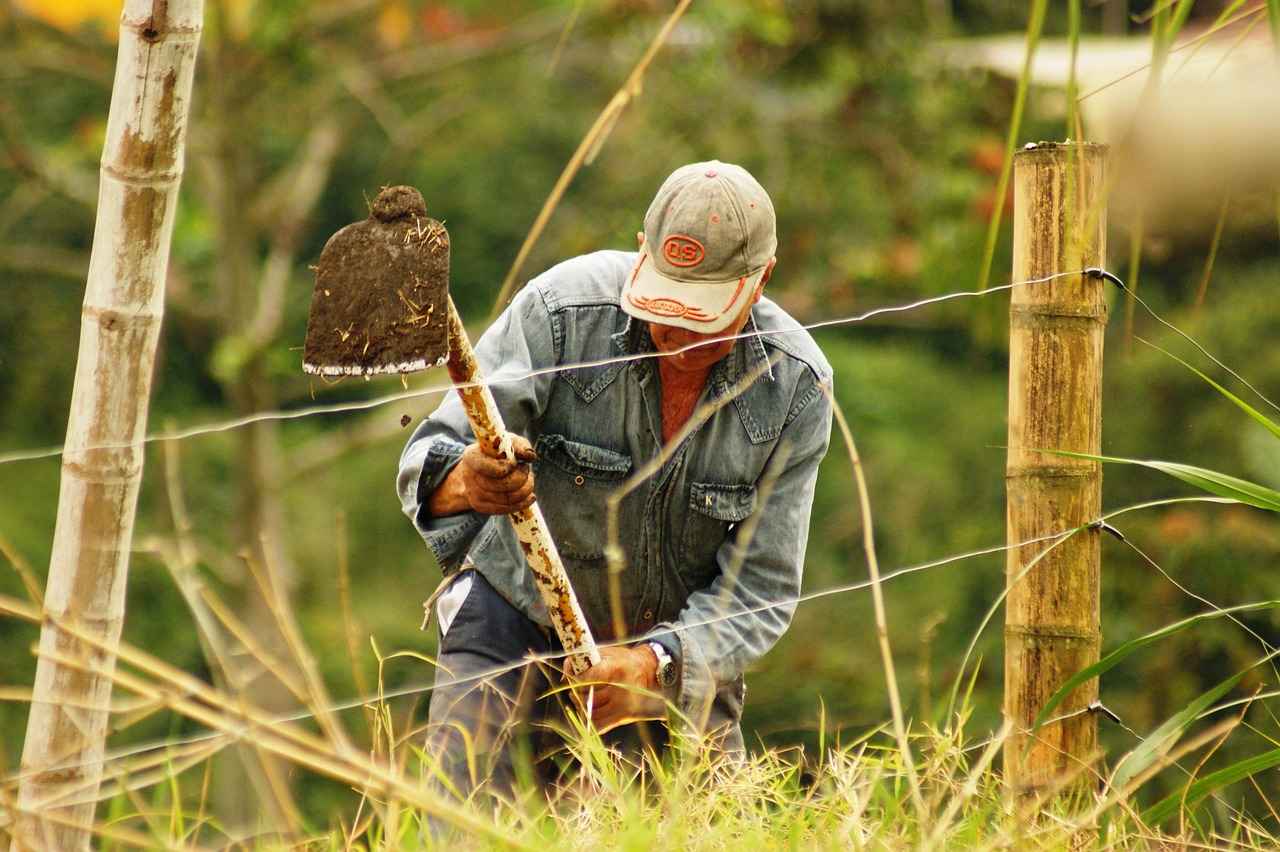This article delves into a variety of portable coffee makers that cater to every budget, providing you with essential insights on features, advantages, and disadvantages. Our goal is to assist you in finding the ideal coffee maker that allows you to enjoy a perfect brew no matter where you are.
Why Choose a Portable Coffee Maker?
Portable coffee makers are a fantastic solution for coffee lovers on the go. They offer convenience and flexibility, allowing you to savor fresh coffee at home, in the office, or while traveling. With these devices, you can enjoy your favorite brew without relying on coffee shops or instant coffee options.
Top Affordable Options Under $50
If you are budget-conscious, there are excellent portable coffee makers available for under $50. Here are some of the best options:
- Single-Serve Drip Coffee Makers: These compact machines are easy to use and perfect for quick brews.
- French Presses: Known for their rich flavor extraction, they are a favorite among coffee enthusiasts.
- Pour-Over Coffee Makers: Ideal for those who enjoy a hands-on brewing experience.
Mid-Range Choices Between $50 and $100
For those willing to invest a little more, portable coffee makers in the $50 to $100 range offer enhanced features:
- Versatile Pour-Over Coffee Makers: These options provide better control over brewing temperature and time.
- Compact Espresso Machines: Perfect for espresso lovers who need a portable solution.
Premium Coffee Makers Over $100
If you are a serious coffee aficionado, premium models over $100 deliver exceptional quality:
- Advanced Features: Look for programmable settings and built-in grinders that enhance the brewing experience.
- User Testimonials: Real-life experiences can help you gauge satisfaction levels and recommendations.
How to Choose the Right Portable Coffee Maker
When selecting a portable coffee maker, consider your brewing method, size, and personal preferences. Evaluate your coffee consumption habits to find a model that fits your lifestyle.
Conclusion: Finding Your Perfect Portable Coffee Maker
In conclusion, there is a wide range of portable coffee makers available to suit every budget and preference. With the right information and insights, you can confidently choose a model that enhances your coffee experience wherever you go.

Why Choose a Portable Coffee Maker?
Portable coffee makers have revolutionized the way coffee lovers enjoy their favorite brew. With the hustle and bustle of modern life, many people find themselves on the go, making it essential to have the ability to brew fresh coffee anywhere. This section delves into the numerous benefits of portability and how it significantly enhances your coffee experience.
One of the primary advantages of portable coffee makers is their convenience. Whether you are traveling, camping, or simply commuting to work, these compact devices allow you to enjoy a freshly brewed cup of coffee without the need for a traditional coffee machine. This flexibility means you can savor your favorite drink at any time and in any place.
Moreover, portable coffee makers often come in various styles and brewing methods, catering to different preferences. From French presses to single-serve machines, there is a portable option for every type of coffee enthusiast. This variety ensures that you can achieve the perfect brew, tailored to your taste, regardless of your location.
- Freshness: Brewing your coffee on demand guarantees that you are always enjoying a fresh cup, enhancing the overall flavor and aroma.
- Cost-Effective: Investing in a portable coffee maker can save you money in the long run by reducing your reliance on expensive coffee shops.
- Eco-Friendly: Many portable coffee makers allow you to use your own coffee grounds, reducing waste associated with single-use coffee pods.
Additionally, the ease of use and cleaning associated with many portable models make them an attractive choice for busy individuals. Many devices are designed for quick assembly and disassembly, allowing for hassle-free brewing and cleaning.
In conclusion, choosing a portable coffee maker not only enhances your coffee drinking experience but also provides unmatched convenience and flexibility. With the ability to brew anywhere, you can enjoy your coffee just the way you like it, no matter where life takes you.

Top Affordable Options Under $50
For those who love coffee but are mindful of their budget, there are a plethora of portable coffee makers available for under $50. These devices not only save you money but also ensure that you can enjoy a fresh cup of coffee wherever you go. Below, we explore some of the best options that combine quality and affordability.
- 1. AeroPress Coffee Maker
- Price: Approximately $30
- Features: Compact, lightweight, and easy to use. Produces rich flavor and is perfect for travel.
- Pros: Quick brewing time, easy to clean, and versatile for different coffee styles.
- Cons: Requires paper filters (though reusable options are available).
- 2. French Press Coffee Maker
- Price: Around $20
- Features: Simple design, no need for electricity, and portable.
- Pros: Excellent flavor extraction, durable, and affordable.
- Cons: Requires careful brewing technique to avoid sediment.
- 3. Pour-Over Coffee Maker
- Price: Approximately $25
- Features: Manual brewing method that allows control over the brewing process.
- Pros: Produces a clean and flavorful cup, lightweight, and easy to store.
- Cons: Requires practice to perfect the technique.
- 4. Mini Espresso Maker
- Price: About $40
- Features: Compact design, requires no electricity, and brews authentic espresso.
- Pros: Great for espresso lovers who travel, easy to use.
- Cons: Limited to espresso and may require additional accessories for best results.
These portable coffee makers are perfect for coffee enthusiasts on a budget. Each offers unique features and benefits, ensuring that you can enjoy quality coffee without overspending. Whether you prefer a quick brew with the AeroPress or the rich flavors of a French press, there’s a suitable option for everyone.
Best Budget Drip Coffee Makers
When it comes to enjoying a fresh cup of coffee without breaking the bank, budget drip coffee makers stand out as an excellent choice. They are not only affordable but also incredibly convenient for everyday use. In this section, we will explore some of the top-rated budget drip coffee makers that combine portability and efficiency, making them ideal for both home and travel.
| Model | Price | Features | User Rating |
|---|---|---|---|
| Coffee Maker A | $25 | Compact size, 12-cup capacity, auto shut-off | 4.5/5 |
| Coffee Maker B | $35 | Lightweight, reusable filter, quick brewing | 4.7/5 |
| Coffee Maker C | $40 | Programmable timer, dishwasher-safe parts, 10-cup capacity | 4.6/5 |
These models are not only budget-friendly but also feature user-friendly designs that simplify the brewing process. Many of them come equipped with features such as auto shut-off for safety, programmable timers for convenience, and even reusable filters to save on costs.
Moreover, portability is a significant advantage of these coffee makers. Their compact designs allow them to fit easily into small kitchens, dorm rooms, or even suitcases for travel. This means you can enjoy your favorite brew wherever you go, without sacrificing quality.
In summary, investing in a budget drip coffee maker not only saves you money but also enhances your coffee experience. With so many options available, finding a model that suits your needs and preferences is easier than ever. Whether you are a casual coffee drinker or a dedicated enthusiast, these budget-friendly machines are sure to meet your expectations.
Features to Look For
When it comes to selecting a budget drip coffee maker, several essential features can significantly enhance your brewing experience. Understanding these factors will help you make an informed decision, ensuring that your coffee maker meets your needs and preferences.
- Size: Consider the dimensions of the coffee maker. If you have limited counter space or plan to travel with it, a compact model is ideal. Look for options that can easily fit into your kitchen cabinet or travel bag.
- Brewing Time: Efficiency is key for many coffee lovers. A budget drip coffee maker should ideally brew a full pot in under 10 minutes. Check user reviews to find models that consistently deliver quick brewing times without sacrificing flavor.
- Ease of Cleaning: Cleaning your coffee maker should be hassle-free. Look for models with removable parts, such as filters and water reservoirs, that can be easily washed. Some coffee makers even have self-cleaning features, which can save you time and effort.
- Durability: Even budget models should be built to last. Investigate the materials used in construction; stainless steel options tend to be more resilient than plastic. Reading customer reviews can provide insight into the long-term durability of various models.
- Brewing Capacity: Depending on your coffee consumption habits, you may want a machine that brews a single cup or a full carafe. Assess how much coffee you typically drink and choose a model that fits your lifestyle.
- Programmable Features: Some budget drip coffee makers come with programmable settings that allow you to set a timer for brewing. This feature can be particularly useful for those who want to wake up to freshly brewed coffee.
By focusing on these key features, you can find a budget drip coffee maker that not only meets your financial constraints but also enhances your overall coffee experience. Investing time in selecting the right model will lead to many enjoyable cups of coffee.
Customer Feedback on Budget Models
User reviews are an invaluable resource when evaluating budget drip coffee makers. They provide insights into the performance, durability, and overall satisfaction of these models. Below, we summarize the common feedback received from users regarding top-rated budget drip coffee makers.
- Ease of Use: Many users appreciate the simplicity of budget drip coffee makers. With straightforward controls and minimal setup required, these machines are ideal for those who want a quick and hassle-free brewing experience.
- Consistent Brewing: A significant number of reviews highlight the ability of these machines to consistently produce a good cup of coffee. Users often mention that they can enjoy flavorful brews without needing to invest in high-end models.
- Affordability: Price is a recurring theme in user feedback. Many consumers express satisfaction with the quality they receive relative to the low cost, making these models an attractive option for budget-conscious coffee lovers.
- Compact Design: Users frequently commend the compact size of these coffee makers, noting that they fit well in small kitchens or travel easily. This portability is a significant advantage for those who enjoy coffee on the go.
- Cleaning and Maintenance: While many users find these machines easy to clean, some have noted that certain models can accumulate coffee residue over time. Regular maintenance is often recommended to ensure optimal performance.
- Durability Concerns: A few reviews mention issues with longevity, where some users experienced breakdowns after extended use. However, many believe that with proper care, these budget models can last a reasonable amount of time.
In conclusion, user feedback on budget drip coffee makers generally points to a positive experience, particularly regarding ease of use and affordability. While there are some concerns about durability, many users feel that these machines provide excellent value for their price.
Best Budget French Presses
French presses are a popular choice among coffee enthusiasts due to their ability to extract rich flavors from coffee grounds. For those who love the convenience of brewing on the go, finding a portable French press that fits your budget is essential. In this section, we will explore some of the best portable French presses available for under $50, focusing on their design, functionality, and overall value.
| Brand | Capacity | Material | Price |
|---|---|---|---|
| French Press Co. | 12 oz | Stainless Steel | $29.99 |
| Travel Press | 15 oz | Glass | $24.99 |
| EcoPress | 8 oz | Bamboo & Glass | $19.99 |
When selecting a portable French press, consider the following features:
- Size and Capacity: Opt for a size that suits your travel needs. Smaller models are easier to pack.
- Material: Stainless steel models are durable and insulated, while glass options provide a classic look.
- Ease of Cleaning: Look for designs that allow for easy disassembly for thorough cleaning.
Customer feedback highlights that many users appreciate the ease of use and affordability of these portable French presses. They are perfect for camping trips, office use, or simply enjoying a fresh cup at home without the need for bulky equipment.
In conclusion, portable French presses under $50 offer a fantastic way to enjoy high-quality coffee without compromising on flavor or convenience. With a variety of options available, you can easily find one that fits your style and budget.

Mid-Range Choices Between $50 and $100
For those who are ready to invest a little more into their coffee experience, the mid-range category of portable coffee makers priced between $50 and $100 offers a wealth of options. These coffee makers come equipped with enhanced features and superior brewing capabilities that cater to both casual coffee drinkers and enthusiasts alike.
One of the standout benefits of this price range is the improved brewing technology. Many models utilize advanced methods such as pour-over and espresso brewing, which can significantly enhance the flavor profile of your coffee. This section will delve into the most popular models available, highlighting their unique features and user feedback.
- Versatile Pour-Over Coffee Makers: These devices are perfect for those who appreciate the art of brewing. They allow for precise control over water flow and temperature, resulting in a more flavorful cup. Popular models include the Hario V60 and the Kalita Wave.
- Compact Espresso Machines: For espresso lovers on the go, compact machines like the Wacaco Minipresso and Handpresso are excellent choices. They are designed to deliver rich espresso shots without the need for bulky equipment.
When selecting a coffee maker in this price range, consider factors such as size, portability, and ease of use. Models that are lightweight and easy to clean will enhance your overall coffee experience.
In conclusion, investing in a portable coffee maker between $50 and $100 not only elevates your coffee brewing capabilities but also ensures that you can enjoy high-quality coffee wherever you are. With a variety of options available, you’re sure to find the perfect model that meets your needs.
Versatile Pour-Over Coffee Makers
offer a unique brewing experience that allows coffee enthusiasts to take control of their coffee-making process. This method has gained popularity due to its ability to produce a clean and flavorful cup of coffee. In this section, we will explore the top options available in the mid-range category, highlighting their versatility and quality.
Pour-over coffee makers are designed to provide a hands-on experience, allowing users to customize their brew to their liking. The process involves pouring hot water over coffee grounds, which then drips through a filter into a carafe or mug. This method not only enhances the flavor but also gives the brewer the ability to experiment with different grind sizes and water temperatures.
- 1. Chemex Classic Series: Known for its elegant design, the Chemex is made from non-porous glass, which does not absorb odors or chemical residues. It uses specially designed filters that are thicker than standard filters, resulting in a clean and crisp cup.
- 2. Hario V60 Dripper: This cone-shaped dripper is popular among coffee aficionados for its simplicity and effectiveness. Its spiral ridges allow for optimal water flow, providing a rich flavor profile. It is also available in various materials such as ceramic, glass, and plastic.
- 3. Kalita Wave: With its unique flat-bottom design, the Kalita Wave ensures even extraction and consistency in every cup. It is ideal for those who appreciate a balanced brew and is available in stainless steel and ceramic options.
When choosing a pour-over coffee maker, consider factors such as material, design, and ease of use. Each model offers distinct features that cater to different brewing preferences. For instance, if you prioritize aesthetics, the Chemex may be your best choice, while the Hario V60 is perfect for those who enjoy experimenting with brewing techniques.
In conclusion, pour-over coffee makers in the mid-range category provide an excellent combination of quality and versatility, making them suitable for both beginners and seasoned coffee lovers. By investing in one of these models, you can elevate your coffee experience and enjoy a delicious cup tailored to your taste.
Compact Espresso Machines
have become a favorite among coffee lovers who seek quality espresso without compromising on space or budget. These portable machines are designed to deliver a rich and flavorful espresso experience, making them perfect for home use, travel, or even camping.
When selecting a compact espresso machine, consider the following features:
- Size and Weight: Look for machines that are lightweight and can easily fit into a backpack or suitcase.
- Brewing Pressure: A pressure of 9 bars or more is ideal for extracting the best flavors from your coffee.
- Ease of Use: Opt for models with straightforward controls that allow quick brewing without a steep learning curve.
- Material Quality: Stainless steel or high-quality plastic ensures durability and longevity.
Many users rave about the Versatility of these machines. For instance, some models allow you to brew not only espresso but also other coffee styles like Americano or cappuccino. This flexibility caters to different tastes and preferences.
In terms of user experience, many compact espresso machine owners appreciate their portability. Reviews often highlight how easy it is to make a great cup of espresso while on the go, whether at the office or outdoors. Some popular models even come equipped with built-in milk frothers, enhancing your coffee experience.
However, it’s essential to note that while compact espresso machines are convenient, they may have limitations compared to larger counterparts. For example, the water reservoir size can be smaller, requiring frequent refills.
In conclusion, compact espresso machines offer an excellent balance of quality and convenience for espresso enthusiasts. With a variety of options available, you can find a model that fits your budget and lifestyle, ensuring you never have to compromise on your coffee experience again.

Premium Coffee Makers Over $100
For serious coffee aficionados, investing in a premium portable coffee maker is essential for achieving exceptional quality and performance. These high-end options, priced over $100, are designed for those who seek the best brews, whether at home, in the office, or on the go.
Premium coffee makers often come equipped with advanced features that set them apart from their budget counterparts. Many models include programmable settings, allowing users to customize brewing times and temperatures to suit their taste preferences. Additionally, some premium machines feature built-in grinders, ensuring that coffee is ground fresh for each brew, which significantly enhances flavor and aroma.
Another key aspect of premium coffee makers is their construction quality. Many high-end models use durable materials that not only improve longevity but also contribute to better heat retention and distribution. This ensures an even extraction, resulting in a consistently rich and flavorful cup of coffee.
| Brand | Model | Price | Key Features |
|---|---|---|---|
| Breville | BES870XL Barista Express | $699.95 | Integrated grinder, stainless steel construction, precise temperature control |
| Rancilio | Silvia Espresso Machine | $799.00 | Commercial-grade components, powerful steam wand, durable design |
| Technivorm | Cup-One Coffee Brewer | $299.00 | Single-serve, precise brewing temperature, high-quality build |
When considering a premium coffee maker, it’s also important to look at user testimonials. Many owners of these high-end machines rave about the improved flavor and consistency of their coffee. They often highlight how the investment has transformed their daily coffee routine into a gourmet experience.
In conclusion, premium portable coffee makers are an excellent choice for those who take their coffee seriously. With their advanced features, superior build quality, and positive user feedback, these machines are well worth the investment for anyone looking to elevate their brewing experience.
Advanced Features of Premium Models
In the world of coffee brewing, premium coffee makers stand out not just for their aesthetic appeal but also for their advanced features that significantly enhance the brewing experience. These machines are designed for coffee enthusiasts who value quality and convenience in every cup.
One of the most sought-after features in premium coffee makers is the programmable settings. This functionality allows users to customize their brewing parameters, such as strength and temperature, ensuring that each cup is tailored to personal taste preferences. With a simple touch of a button, you can wake up to the aroma of freshly brewed coffee, perfectly timed to your morning routine.
Another innovative feature found in many high-end models is the built-in grinder. This addition not only saves counter space but also ensures that your coffee is ground fresh for each brew, preserving the essential oils and flavors that can diminish over time. The ability to adjust grind size means you can experiment with different brewing methods, from espresso to French press, unlocking a world of flavor profiles.
Additionally, many premium coffee makers come equipped with smart technology. These devices can be controlled via smartphone apps, enabling you to start brewing remotely or receive notifications when your coffee is ready. This integration of technology adds a layer of convenience that modern coffee drinkers have come to expect.
Moreover, premium models often feature advanced filtration systems. These systems improve water quality, which is crucial since the taste of your coffee is heavily influenced by the water used. Enhanced filtration can remove impurities and chlorine, leading to a cleaner, more flavorful brew.
In conclusion, investing in a premium coffee maker with these advanced features not only elevates your brewing experience but also transforms your daily coffee ritual into a luxurious experience. Whether you are a casual drinker or a serious connoisseur, these innovations make a significant difference in the quality of your coffee.
User Testimonials on Premium Coffee Makers
When investing in a premium portable coffee maker, it’s essential to consider the experiences of those who have already made the leap. Real user experiences can significantly guide your purchasing decision, providing insights that specifications alone cannot. Below, we summarize testimonials from satisfied owners of premium portable coffee makers, highlighting their satisfaction and recommendations.
- Exceptional Brew Quality: Many users rave about the rich and flavorful coffee produced by premium models. One user mentioned, “The taste is on par with my favorite café, and I can enjoy it anywhere!”
- Convenience and Portability: Users appreciate the compact design that allows them to carry their coffee makers easily. A frequent traveler shared, “I take mine on every trip. It fits perfectly in my backpack, and I never have to settle for subpar coffee.”
- Advanced Features: Premium models often come with features like programmable settings and built-in grinders. A user stated, “The timer function is a game-changer! I wake up to freshly brewed coffee every morning without lifting a finger.”
- Durability and Design: Many testimonials highlight the robust build quality and aesthetic appeal of premium coffee makers. One owner commented, “It feels solid and looks great on my kitchen counter. I can tell it will last for years.”
- Customer Support: Users have noted the excellent customer service provided by premium brands. A reviewer mentioned, “I had a minor issue, and the support team was incredibly helpful and responsive.”
In conclusion, the testimonials from users of premium portable coffee makers reveal a high level of satisfaction. Their experiences underscore the importance of quality, convenience, and customer support in making a worthwhile investment. If you’re considering a premium model, these insights can help you make an informed decision that aligns with your coffee preferences.

How to Choose the Right Portable Coffee Maker
Choosing the right portable coffee maker can be a daunting task, especially with the myriad of options available on the market today. To make an informed decision, it is essential to consider several key factors that will affect your brewing experience. This section provides practical tips to guide you in selecting the perfect coffee maker that aligns with your lifestyle and preferences.
- Brewing Method: Different coffee makers utilize various brewing methods, such as drip, French press, pour-over, or espresso. Each method produces unique flavors and aromas. Assess your taste preferences and choose a method that resonates with your coffee style.
- Size and Portability: Since you are looking for a portable coffee maker, size matters. Consider how much space you have in your bag or car. Compact models are ideal for travel, while larger ones may offer more features but can be cumbersome to carry.
- Ease of Use: Look for a coffee maker that is simple to operate. If you are often on the go, a model that requires minimal setup and cleanup will enhance your experience. Some machines offer one-touch brewing, which can be a significant time-saver.
- Durability: A portable coffee maker should be robust enough to withstand travel conditions. Materials like stainless steel or high-quality plastic are preferable for their durability and resistance to wear and tear.
- Price Range: Determine your budget before diving into the options. Portable coffee makers can range from budget-friendly to premium models. Establishing a price range will help narrow down your choices and prevent overspending.
By taking the time to assess these factors, you can confidently choose a portable coffee maker that not only meets your brewing needs but also enhances your coffee experience. Whether you are camping, traveling, or simply enjoying coffee at home, the right machine can make all the difference.
Assessing Your Coffee Needs
is an essential step in selecting the ideal portable coffee maker that aligns with your lifestyle and preferences. Understanding your coffee consumption habits can significantly influence your choice, ensuring you find a device that meets your daily requirements.
To begin with, consider how often you consume coffee. Are you a casual drinker who enjoys a cup occasionally, or do you rely on coffee to kick-start your day? If you find yourself reaching for a cup multiple times a day, a more efficient and higher-capacity coffee maker might be necessary.
Next, think about your preferred brewing method. Do you enjoy the rich flavors of a French press, the convenience of a drip coffee maker, or the espresso shot from a compact espresso machine? Each method offers a unique experience, and your choice will guide you toward the right portable option.
Another factor to consider is your typical coffee consumption location. If you’re often on the go, look for a portable coffee maker that is lightweight and easy to pack. Options like single-serve machines or manual brewers can be ideal for travel, as they don’t require electricity and can brew a cup wherever you are.
Additionally, think about the size of the coffee maker. If you have limited space, a compact model may be more suitable. Portability is key here; choose a design that fits comfortably in your bag without taking up too much room.
Finally, consider your budget. Portable coffee makers come in a wide range of prices, so identifying how much you are willing to spend can help narrow down your options. Remember, investing in a quality coffee maker can enhance your daily coffee experience significantly.
By carefully evaluating these aspects of your coffee habits, you can make an informed decision that leads to a satisfying purchase, ensuring that your portable coffee maker serves you well, whether at home, in the office, or on your travels.
Comparing Different Brewing Methods
Coffee lovers know that brewing methods significantly impact the flavor, aroma, and overall experience of their favorite beverage. Each technique brings out unique characteristics in the coffee, making the choice of brewing method crucial for achieving the desired taste. In this section, we will explore various popular brewing methods, highlighting their distinct features, advantages, and the flavor profiles they produce.
- Drip Coffee Makers: This method involves pouring water over coffee grounds contained in a filter. The water then drips through the coffee, extracting flavors as it goes. Drip coffee makers are known for their convenience and ability to brew multiple cups at once. They typically produce a clean, mild flavor, making them ideal for those who prefer a straightforward cup of coffee.
- French Press: The French press is a manual brewing method that immerses coffee grounds in hot water before pressing them down with a plunger. This technique allows for a rich extraction of oils and flavors, resulting in a full-bodied and robust cup. Coffee brewed with a French press often has a more intense flavor, appealing to those who enjoy a stronger brew.
- Pour-Over: This method involves pouring hot water over coffee grounds in a filter, allowing for precise control over the brewing process. Pour-over coffee makers, such as the Chemex or Hario V60, are favored for their ability to produce a clean, bright cup with pronounced flavors. This method is perfect for coffee enthusiasts who appreciate the nuances in different coffee beans.
- Espresso Machines: Espresso is a concentrated coffee brewed by forcing hot water through finely-ground coffee under high pressure. The result is a rich, bold flavor with a layer of crema on top. Espresso serves as the base for various coffee drinks, including lattes and cappuccinos, making it a versatile choice for those who enjoy coffee in different forms.
- AeroPress: This innovative device combines immersion and pressure to brew coffee. Users add coffee grounds and hot water, then use a plunger to extract the coffee. The AeroPress is known for its ability to create smooth, rich coffee with low acidity. It’s portable and easy to clean, making it a favorite among travelers.
By understanding these various brewing methods, you can make an informed decision about which portable coffee maker aligns with your taste preferences. Whether you enjoy the convenience of a drip coffee maker or the rich flavors of a French press, the right method can elevate your coffee experience to new heights.

Conclusion: Finding Your Perfect Portable Coffee Maker
In today’s fast-paced world, the need for convenience without sacrificing quality is paramount, especially for coffee lovers. Portable coffee makers have become a game-changer, allowing enthusiasts to enjoy their favorite brews no matter where they are. From camping trips to office breaks, these compact devices cater to a variety of tastes and budgets.
When considering a portable coffee maker, it’s essential to explore options that fit your lifestyle. Whether you’re a fan of drip coffee, French press, or espresso, there are models available across different price ranges. For those on a budget, there are reliable machines under $50 that deliver satisfying results without compromising on flavor. As you move up in price, you’ll find features such as faster brewing times, better temperature control, and enhanced durability.
For coffee aficionados willing to invest a bit more, the mid-range options between $50 and $100 offer a balance of quality and affordability. These models often include versatile brewing methods, ensuring that you can enjoy a rich cup of coffee whether you’re at home or on the go. Additionally, premium models priced over $100 provide advanced features like programmable settings, built-in grinders, and superior materials, catering to the most discerning coffee drinkers.
Ultimately, choosing the right portable coffee maker requires careful consideration of your personal preferences and coffee consumption habits. Assessing factors such as size, brewing method, and ease of cleaning will help you narrow down your options. Remember, the best coffee maker is one that fits seamlessly into your routine, allowing you to savor your favorite drink anytime, anywhere.
In conclusion, the market offers a plethora of portable coffee makers to suit every budget and preference. Armed with the right information, you can confidently select a model that will elevate your coffee experience, ensuring that you never have to compromise on quality, no matter where life takes you.
Frequently Asked Questions
- What is a portable coffee maker?
A portable coffee maker is a compact brewing device that allows you to make coffee anywhere, whether you’re camping, traveling, or at the office. They come in various styles, including drip, French press, and espresso machines, designed for convenience and ease of use.
- How do I choose the right portable coffee maker for my needs?
Choosing the right portable coffee maker depends on your personal coffee preferences, budget, and how you plan to use it. Consider factors like brewing method, size, and features. If you enjoy rich flavors, a French press might be ideal, while espresso lovers may prefer a compact espresso machine.
- Are budget portable coffee makers any good?
Absolutely! Many budget portable coffee makers under $50 offer great quality and performance. They may lack some advanced features, but they can still brew a delicious cup of coffee without breaking the bank.
- What are the benefits of using a portable coffee maker?
Using a portable coffee maker gives you the freedom to enjoy fresh coffee wherever you are. It saves you money on coffee shop visits and allows you to customize your brew according to your taste. Plus, it’s perfect for those who are always on the go!
- Can I make espresso with a portable coffee maker?
Yes, many portable coffee makers are designed specifically for making espresso. Compact espresso machines are available that can deliver rich and flavorful shots, perfect for espresso enthusiasts who want to enjoy their favorite brew on the move.














